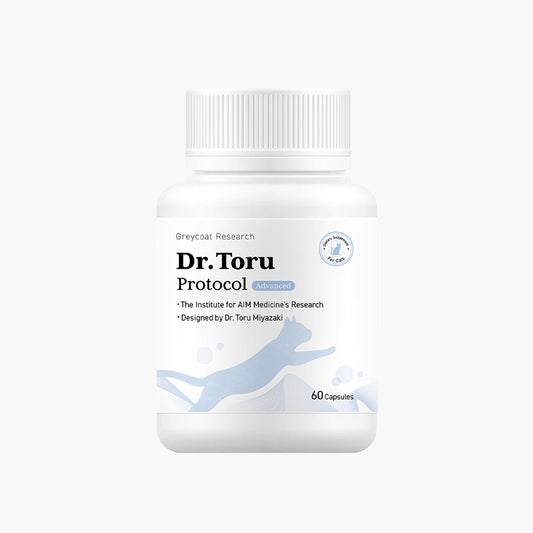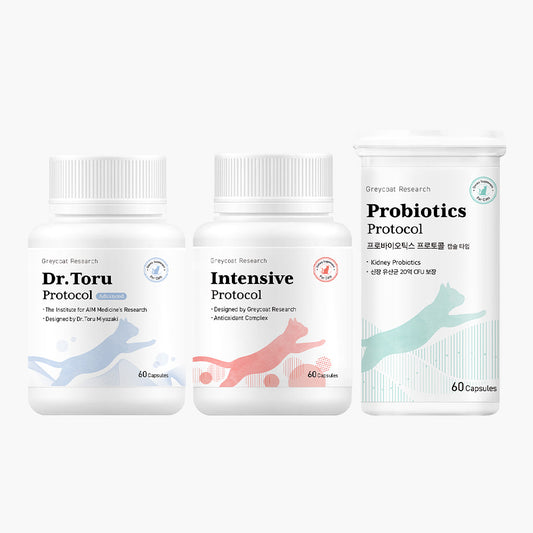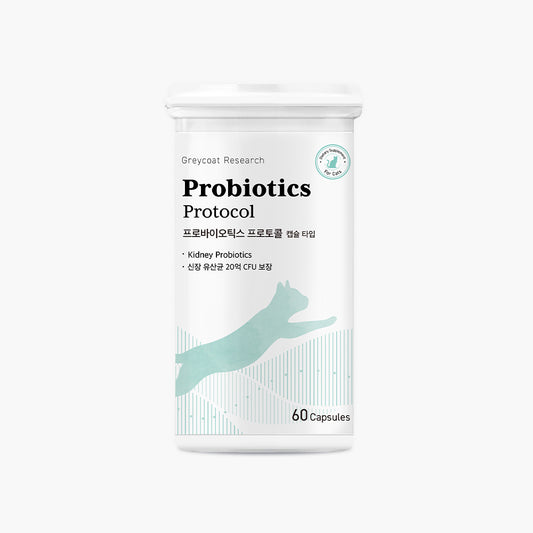
Leo, a cat diagnosed with both CKD and IBD, faced a particularly complex case. Due to dietary restrictions, he could not follow a standard renal diet. However, with AIM supplementation and targeted kidney support, his condition has stabilized, making his management significantly more effective.

- Age: 12 years
- Sex: Male
- Weight: Previously 4.3 kg, currently 4.1 kg
- Condition: CKD and IBD (Inflammatory Bowel Disease)
- Symptoms Before Treatment: Vomiting, difficulty maintaining weight, dietary restrictions due to IBD
- Previous Diet & Treatments: Allergy and gastro-specific diets, kidney medications, blood pressure medication
Leo's Health Improvements
Leo began AIM supplementation on December 3, 2024. By January 2025, his kidney health showed signs of stabilization.
|
Health Metric |
Before |
After |
Change |
|
Creatinine (CRE) |
2.8 |
2.3 |
Decreased (improved kidney waste filtration) |
|
BUN Levels |
28.4 |
28.9 |
Slight Increase (monitor hydration) |
|
Phosphorus Levels |
3.8 |
4.2 |
Slight Increase (phosphorus management needed) |
|
Weight |
4.3 kg |
4.1 kg |
Decreased (focus on weight maintenance) |

How Did Leo Improve?
Energy and Activity
- Energy levels remain stable, with no significant declines.
- Shows good responsiveness to treatment despite dietary limitations.
Weight and Appetite
- Struggles with weight gain due to vomiting issues.
- Loves food but vomits when overeating, requiring careful portion adjustments.
Appearances & Other Changes
- No reported issues.
Supplement Adjustments
- Started Dr. Toru Protocol in December 2024.
- Currently taking Intensive Protocol, an antioxidant supplement, omega-3, Azodyl, Renamezin, and blood pressure medication as part of his CKD management.
- Not taking IBD supplements or nutritional supplements for urinary tract disease despite initial consultation recommendations.
Leo’s creatinine levels decreased from 2.8 to 2.3, suggesting improved kidney waste filtration. This drop is particularly noteworthy, considering he has only been receiving AIM supplementation and Greycoat Research’s care for 1 month. However, managing his weight remains a challenge due to IBD-related vomiting, requiring careful monitoring to ensure stability.
While BUN and phosphorus levels have risen slightly, this is not a cause for concern at this stage, as only 1 month of supplementation is not enough to assess full effects. Continued observation over the next 3 months will provide a clearer picture of his long-term response to care.
"Managing both IBD and CKD has been extremely difficult, especially with diet restrictions. Leo had a history of vomiting and couldn’t eat renal diets, making it hard to control his kidney values. After starting AIM supplementation, his management became much easier. Although we still struggle with weight gain, I’m relieved that his kidney values have stabilized."




